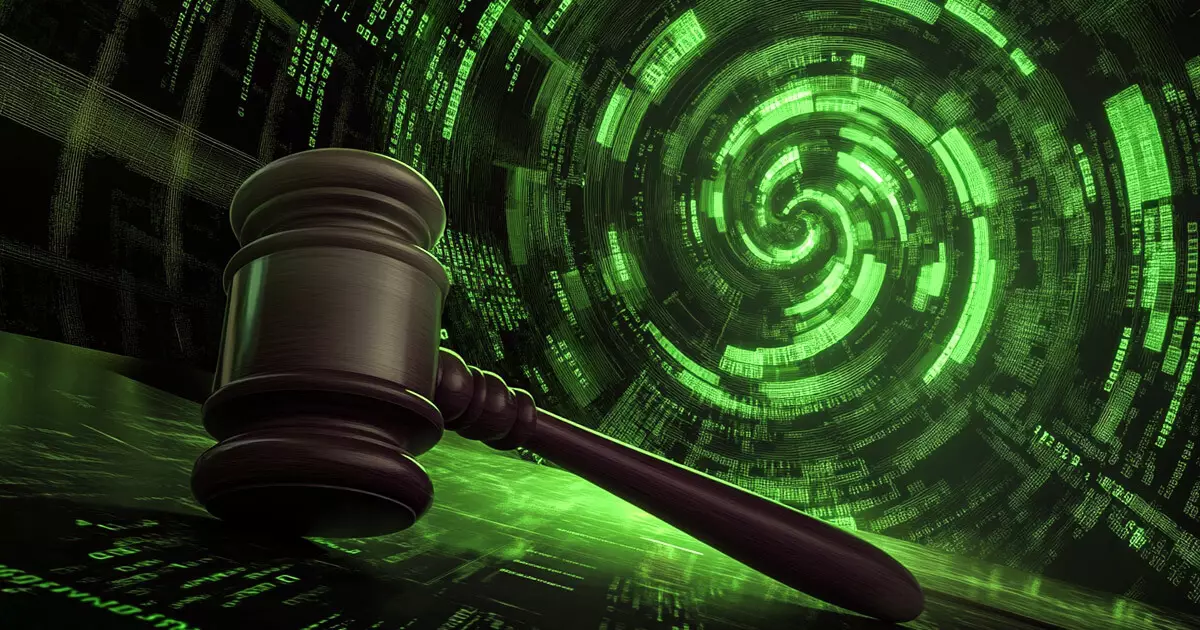The cryptocurrency industry is undergoing significant scrutiny, particularly from regulatory and legal perspectives. A recent ruling by Judge Katherine Polk Failla from the Southern District of New York raises questions not only about the implications for crypto protocols such as Tornado Cash but also about the broader impact on software developers in the blockchain space. This decision is poised to shape the legal landscape of digital currencies, exerting pressures on how developers are defined under the law—an area that desperately requires clarity amid rapid technological advancements.
The focal point of Judge Failla’s ruling lies with Tornado Cash, a decentralized mixing service that obscures cryptocurrency trails to enhance user privacy. The case against its developer, Roman Storm, centers on accusations of money laundering, operating an unlicensed money-transmitting business, and violating US sanctions. In his defense, Storm contended that the code he wrote should be protected under the First Amendment as a form of free speech. However, Judge Failla determined that while computer code can possess expressive qualities, its use for executing financial transactions diverges from the protections afforded to speech.
This thrust of the ruling hinges on the legal interpretation of what constitutes “money transmission.” Judge Failla’s stance indicates that sending and receiving funds, irrespective of the developer’s direct control over those movements, qualifies as money transmission under the Bank Secrecy Act (BSA). This establishes a potentially far-reaching precedent. In doing so, the ruling reshapes the conversation surrounding cryptocurrency protocols and their developers’ responsibilities and liabilities in adherence to US law.
The ruling elicited a wave of concern among legal experts and industry professionals, voicing fears regarding increased liability for software developers. Amanda Tuminelli, chief legal officer for the DeFi Education Fund, articulated worries that such a decision could impose obligations on developers previously considered unlikely. According to Tuminelli, the adverse outcomes of the case could be monumental. A chilling effect on innovation is a genuine possibility, as coders may hesitate to engage in developing software that could expose them to potential federal legal challenges.
Jake Chervinsky, Variant’s chief legal officer, echoed these concerns, vehemently criticizing the ruling as a severe threat to the freedoms traditionally enjoyed by software developers. Chervinsky’s assertion that the ruling constitutes “an assault on the freedom of software developers everywhere” reflects a historical concern in legal discourse about regulatory overreach, particularly in an area as innovative and rapidly evolving as blockchain technology.
Despite the criticisms, Judge Failla’s ruling does offer clarity on a contentious matter: The extent to which businesses facilitating crypto transactions are subject to existing financial regulations. As legislators and regulators seek to apply conventional financial laws to emerging technologies, the delineation set forth in this decision may assist in defining the legal framework for cryptocurrency operations. While some may argue that this clarity is beneficial, it also raises questions about stifling innovation and creativity within the tech sector.
Moreover, developers could face hostile environments if every line of code they write can come under regulatory scrutiny. As the law currently stands, the uncertainty engendered by the potential for criminal liability could hinder creative solutions in the blockchain space.
As the trial for Roman Storm is scheduled for December 2, the outcome of this case will likely have lasting effects on how cryptocurrency is approached legally. Storm’s legal team has already hinted at plans to appeal, which could further sparkle discussions about liability and the definition of money transmission in the digital space.
The judicial decision outlined in this case will likely serve as a backdrop for future regulations impacting the cryptocurrency industry. With dissenting opinions emerging from within the legal and crypto community, the necessity for a more precise understanding of the interplay between innovation and regulation is paramount. The ongoing legal wrangling may not only define the fate of individuals like Roman Storm but also set the tone for the future of software development in this fast-evolving field.













